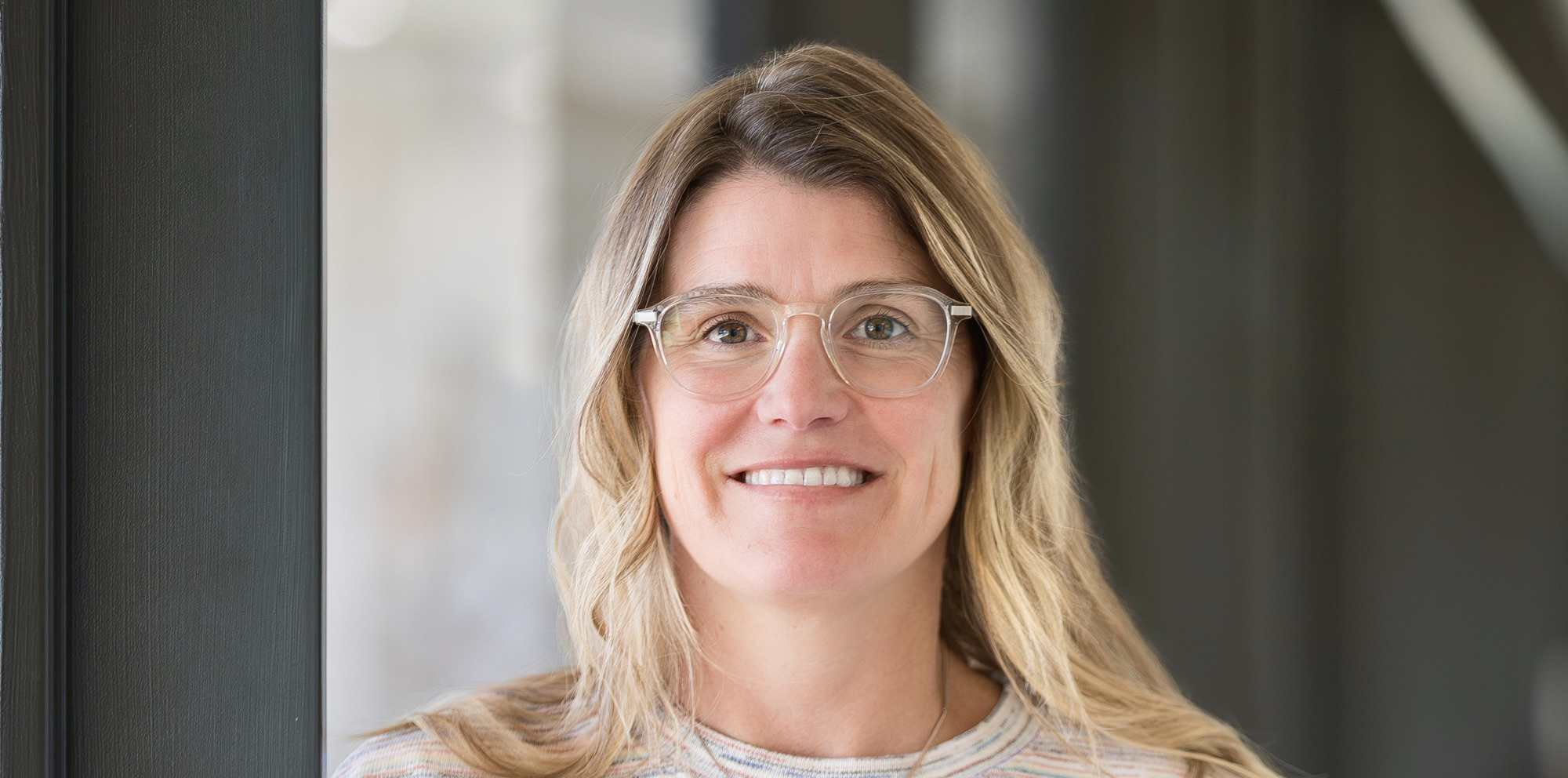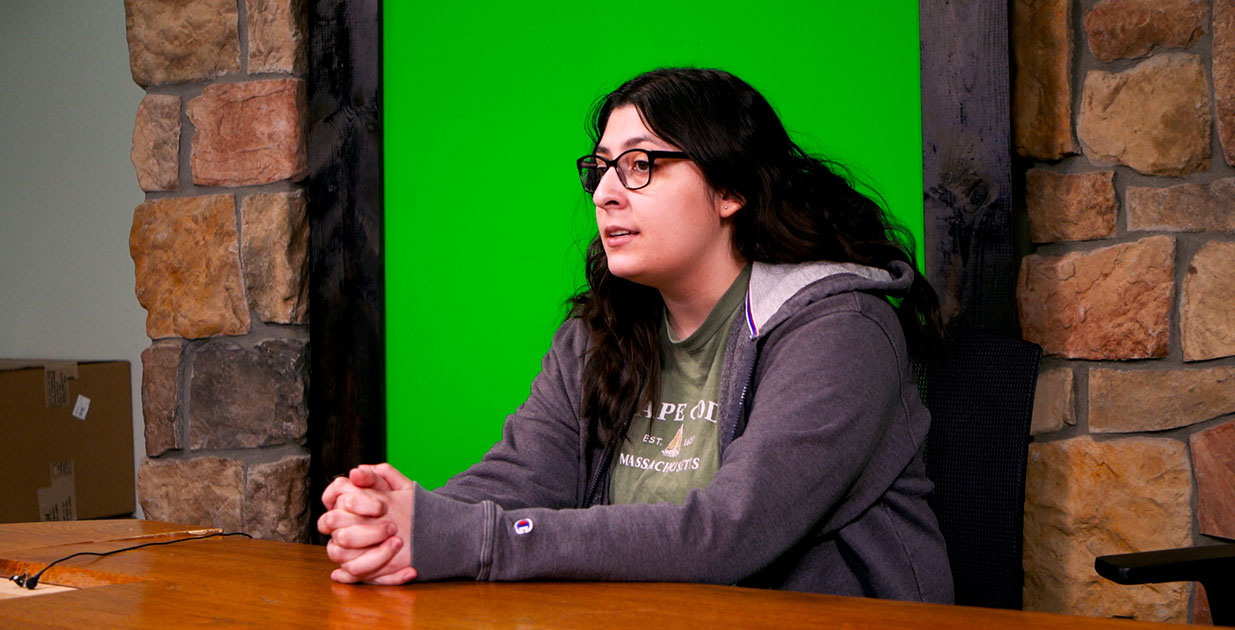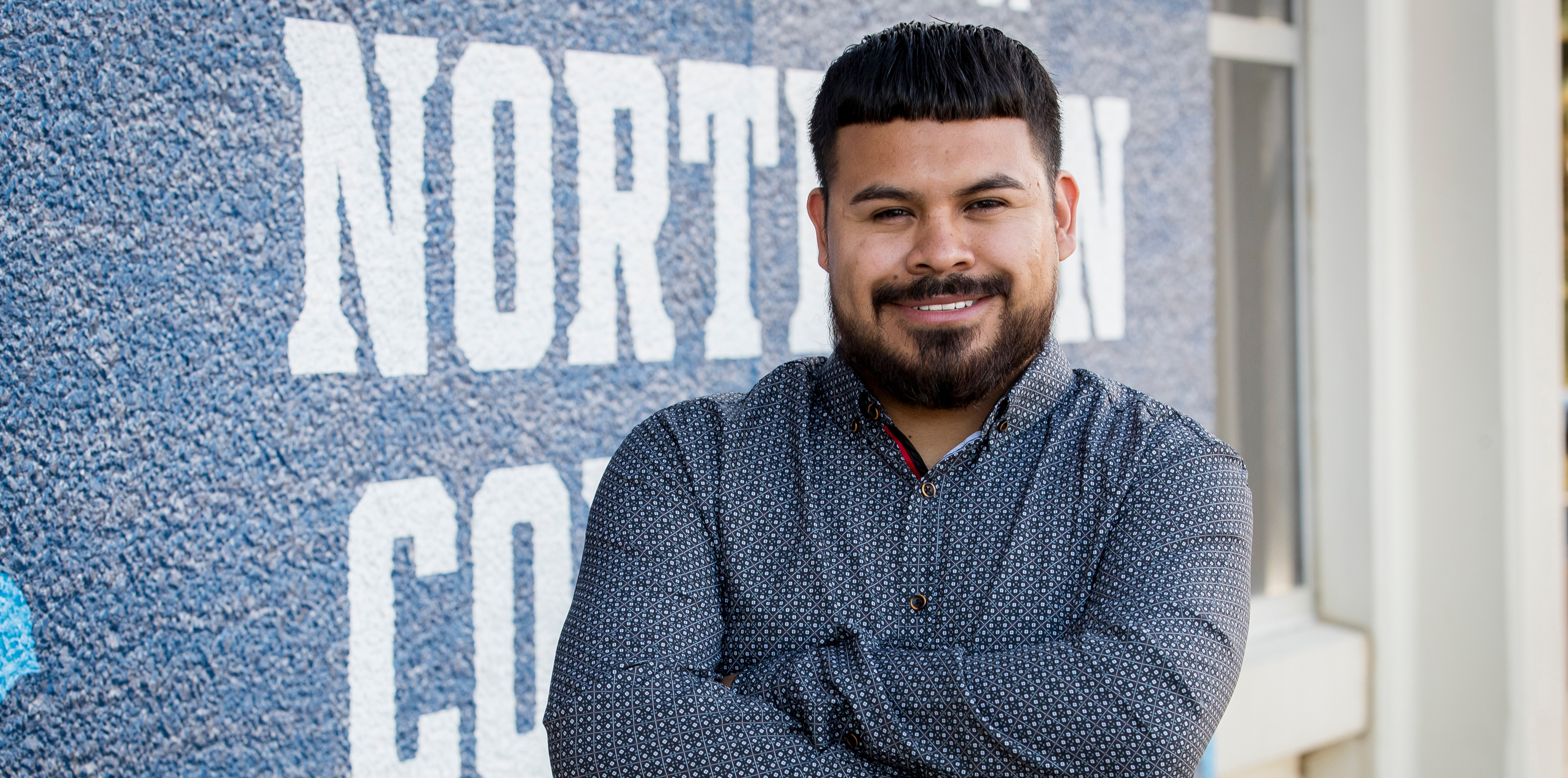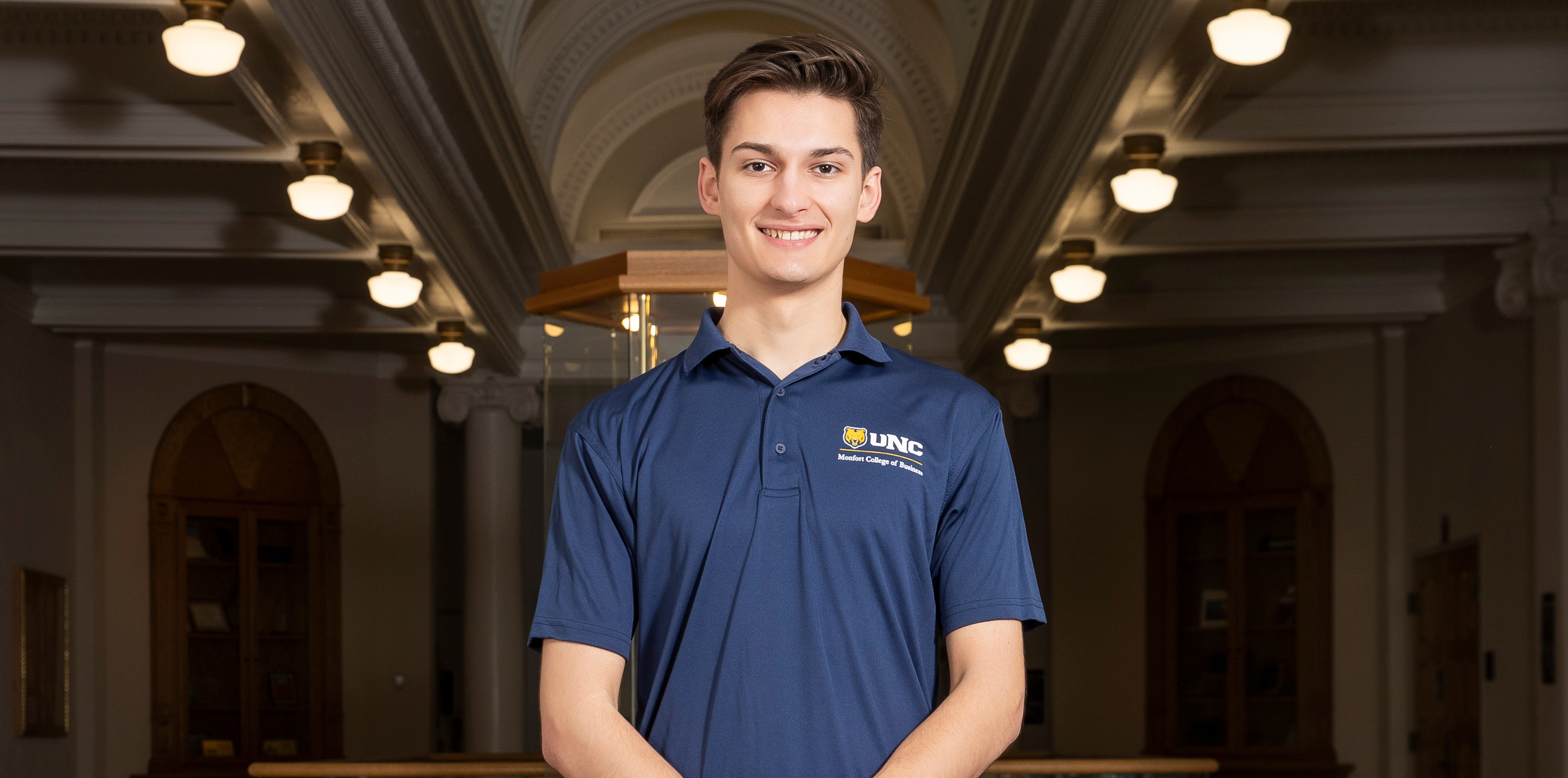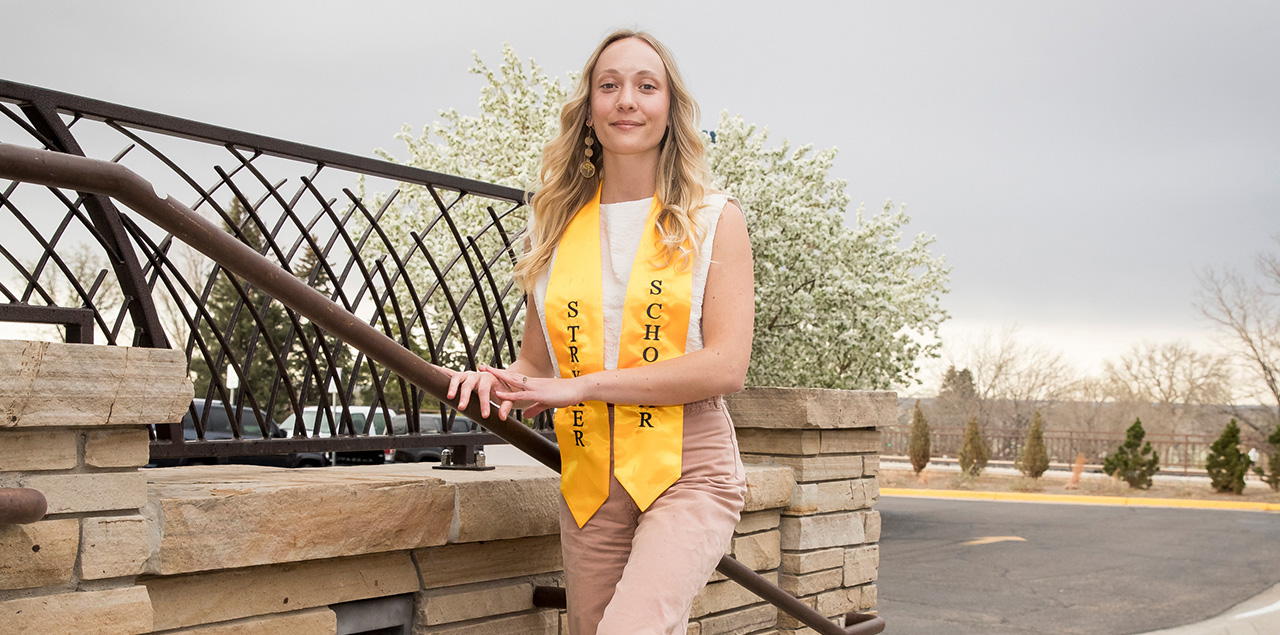
At age 19, Communications Sciences and Disorders major Madeline Dannewitz struck out on her own, leaving her family home and the tight-knit religious community she grew up in in Northern California. She worked various outdoor jobs as a rafting guide, paddle science instructor, snowboard instructor and lifeguard. She wasn’t quite sure the direction her future was going to go — until her boss gave her a book that changed her life.
“They said, ‘I just read this book, and it reminded me of you. I know you’re young, you don’t have it all figured out right now, but I think college is something that would be right for you,’” Dannewitz said.
The book was Educated by Tara Westover – a New York Times bestselling memoir about a 17-year-old struggling to understand what an education means as she tries to re-invent herself.
“So, I read the story and I said, ‘Oh, we have corresponding things that have gone on in our lives, and if she can do it and she figured it out, I could probably, too,’” Dannewitz said.
Prior to this, college was not on the table for Dannewitz —it was never recommended or encouraged as an option. No one in her family lineage had ever pursued a college degree, but the story sparked a craving for learning. One week after finishing the book, Dannewitz enrolled at a community college and started her journey in her higher education career the week after.
“I immediately said, ‘OK, I’m going to do this and I’m going to do this for me,’” Dannewitz said.
However, Dannewitz quickly discovered she had significant barriers that she had to overcome, not knowing the processes and applications required to apply to college.
“Filling out my FAFSA was a huge struggle when I was 19,” Dannewitz said. “When you’re under the age of 24, they want to see all your parents' income. Well, my parents wouldn’t provide that because they have different fundamental beliefs, so it was a huge process with financial aid.”
But Dannewitz persevered and graduated with her associate degree from a small community college before enrolling at the University of Northern Colorado (UNC). She was awarded the Stryker Institute for Leadership Development scholarship, which serves women from underrepresented groups and supports scholars in their identity and leadership development as well as selected for the prestigious McNair Scholar Program, which prepares underrepresented students for doctoral studies through involvement in research and other scholarly activities to increase the attainment of Ph.D.s among these populations. The programs introduced Dannewitz to other students, specifically first-generation students, who were facing some of the same adversities.
“It’s nice to find support in communities through that, and bounce everyday struggles off of each other,” Dannewitz said. “We’re all going to be friends for life.”
‘If I’m going to do this, leave my community abruptly with no resources and few other people I know, then I’m going to do it in a way that is exactly what I want and I’m going to be successful or I’m not going to do it at all.”
– Madeline Dannewitz
Finding a group of people to bond and connect with has been a huge takeaway from Dannewitz’ experience at UNC. Growing up in a town where everyone knows everyone, and then moving away and going to a community college during the COVID-19 pandemic completely online, she was missing that deep, personal connection within her peers that typifies the college experience.
“I lost my entire community when I left home in pursuit of a life that is genuine to me and pursuing a college education and putting myself first,” Dannewitz said. “In losing that, I think I realized the importance of a community. Now that I have a community behind me at UNC and in my personal life, I know I’ll want it in my professional life, too.”
Building connection and community influenced what Dannewitz wants to do after graduation. First, she already knows her journey in higher education isn’t over. She will be attending UNC for graduate school to study Speech Pathology and is interested in getting her doctorate. But for a career, she's looking to return to some familiarity.
“I really would like to live in a smaller community again and be able to be a community leader that can wear multiple hats and serve my community in different ways,” Dannewitz said.
For example, if she ends up working in pediatrics, Dannewitz imagines herself partnering with a midwife and performing rural newborn hearing screenings for those who can’t afford them. Or, if she works in a school district, she’d like to be elected to the school board and help improve rural education.
“I want to help other people because so many people helped me along the way and I really want to be able to pay that back,” Dannewitz said.
Dannewitz is already serving the Deaf community through her research. She has a special connection with this group since she grew up near a Deaf community as her horse trainer was an American Sign Language (ASL) interpreter who taught her about the Deaf community. She also learned about them through her past religious involvement.
Armed with knowledge in American Sign Language, the goal of becoming a speech pathologist and the love for the outdoors, Dannewitz conducted undergraduate research on the Deaf experience in national parks with a focus on Rocky Mountain National Park through her work in both the McNair and Honors Program.
“There are significant barriers for Deaf people in outdoor settings, yet this has never been researched. So, I wanted to know how this applies to our national parks,” said Dannewitz.
Rocky Mountain National Park, which was completely supportive of the research, gave Dannewitz access to interview Deaf park guests to see where there could be improvements in providing information and accessibility to them. As a result, Dannewitz found the greatest challenges for the community were finding timely interpretation, few events that are Deaf-centric and a lack of visual signage throughout the park.
“If people don’t have access to information in the first place, then, how would they know even how to get to the parks?” Dannewitz said.
Dannewitz will be presenting her research to Rocky Mountain National Park leadership after graduation, and says Subaru is also interested in getting involved. It’s an opportunity Dannewitz knows would not be possible if she never read about the power of an education and chose to make the life-altering decision to chase after it for herself.
“I had to talk with myself way back when and said, ‘If I’m going to do this, leave my community abruptly with no resources and few other people I know, then I’m going to do it in a way that is exactly what I want and I’m going to be successful or I’m not going to do it at all,’” Dannewitz said. “And I’m so glad I made the choice I did.”
UNC is deeply committed to meeting students’ financial needs. In 2022-23, 87% of all UNC undergraduate students received some type of grant or scholarship aid that does not need to be repaid.
Madeline Dannewitz received the following donor-funded scholarships and UNC institutional scholarships or other federal, state or grant aid.
- Stryker Scholar
- Dr. Vinnie Scalia Memorial Scholarship
More Stories
-
Health, Self and the Human Experience
Este artículo no está en español.
-
Finding the Scoop: Zvi Gutierrez at UNC
En busca de la primicia: Zvi Gutiérrez en UNC
-
Special Education Graduate Deeply Committed to Helping Those Who Need the Most Help
Recién graduado en Educación Especial, comprometido a ayudar a quienes más lo necesitan
-
Launching a Career at the Start
Empezando una carrera como emprendedor


